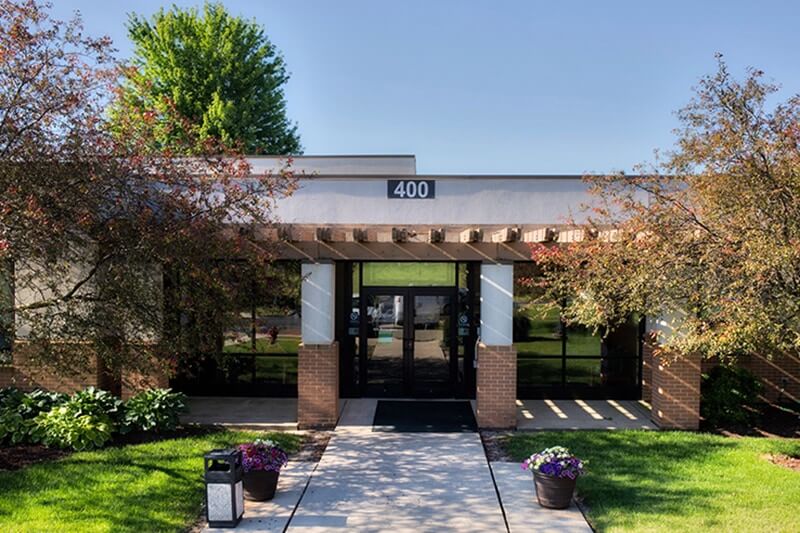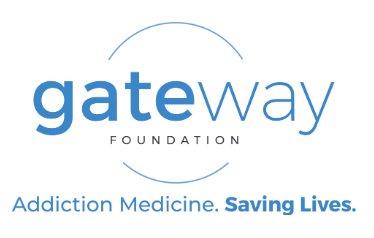Gateway Foundation


Overview
Gateway Foundation is a substance abuse treatment center for people seeking treatment near Lake County. As part of their treatment modalities for recovery, Gateway Foundation provides cognitive behavioral therapy during treatment. Gateway Foundation is located in Lake Villa, Illinois, accepting cash or self-payment for treatment.
Gateway Foundation at a Glance
Payment Options
- Cash or self-payment
- Medicaid
- State-financed health insurance plan other than Medicaid
- Private health insurance
- Federal, or any government funding for substance use treatment programs
Assessments
- Screening for tobacco use
- Comprehensive substance use assessment
- Interim services for clients
- Outreach to persons in the community
- Screening for mental disorders
Age Groups
- Young adults
- Adults
Ancillary Services
- Case management service
- Integrated primary care services
- Suicide prevention services
- Domestic violence services, including family or partner
- Early intervention for HIV
Accreditations
The Joint Commission:

The Joint Commission, previously known as JCAHO, is a nonprofit organization that accredits rehabilitation organizations and programs. Established in 1951, its mission is to enhance the quality of patient care and showcase excellence in healthcare delivery.
Treatment At Gateway Foundation

Conditions Treated
24-Hour Clinical Care:
At certain points in the recovery process, it's important to have support available 24/7. 24-hour clinical care offers a safe environment in which to recover from drug or alcohol addiction in peace, knowing medical detox and other treatment will happen with professionals on hand.
Alcoholism:
Alcohol addiction is when a person becomes physically and mentally dependent on alcohol, leading to mood swings, impulsive actions, intense cravings, and withdrawal symptoms. Treatment includes supervised detox, therapy, and support groups. It's important to note that rehabilitation doesn't "cure" alcoholism, but it helps individuals better manage their addiction, regain their ability to function in daily life, and improve their overall well-being.
Mental health treatment:
Mental health treatment involves a range of therapeutic approaches, provided by licensed professionals, to address mental health challenges. It includes psychotherapy, medication, and holistic practices to help individuals manage conditions, improve coping skills, and enhance overall well-being. The goal is to empower individuals to lead fulfilling lives and reduce the stigma surrounding mental health.
Substance use treatment:
Substance abuse treatment programs can help to address addiction and, if relevant, any co-occurring mental health conditions. Programs include outpatient, inpatient, dual-diagnosis, and partial hospitalization. The addict will receive therapies like cognitive behavioral therapy, or dialectical behavioral therapy, and sometimes complementary therapies like acupuncture and mindfulness-based therapy. By attending skills training and recovery groups you’ll build a strong foundation for your recovery and strengthen your support network, increasing your chances of long-term recovery success.
Co-occurring Disorders:
Dual-diagnosis rehabilitation centers usually offer the most suitable approach for addressing concurrent mental health and substance abuse conditions. Within these facilities, a team of medical and behavioral professionals is typically assembled, employing diverse interventions and cultivating an optimal therapeutic environment to enable you to attain and maintain lasting recovery. The treatment regimen often encompasses evidence-based therapies, such as cognitive behavioral therapy, complemented by recovery support gatherings, 12-step program facilitation, skills development, and group therapy.

Levels Of Care
Hospital inpatient treatment:
Inpatient treatment involves a comprehensive residential therapeutic program where patients stay on-site for a duration typically ranging from 30 to 90 days. This immersive environment offers structured support, ensuring safety and a focus on recovery. Therapies provided include individual and group counseling, cognitive-behavioral therapy, holistic treatments, family therapy sessions, and experiential therapies. The aim is to address addiction or mental health disorders' physical, emotional, and psychological aspects, laying a robust foundation for sustained healing.
Short-term residential:
Short-term residential rehab programs provide an intensive and focused approach to addiction recovery. These programs typically last a few weeks to a few months, making them ideal for individuals with work or family commitments. They offer round-the-clock care, counseling, and support to help clients stabilize, develop coping skills, and create a recovery plan. In contrast to long-term rehab, which extends for months or years, short-term programs are more time-efficient, making them a suitable choice for those seeking intensive treatment with limited time availability.
Residential detoxification:
Residential Detoxification is a specialized and structured program designed to assist individuals in safely and comfortably withdrawing from substances such as drugs or alcohol within a supportive and supervised residential setting. This essential phase of addiction treatment offers 24/7 medical monitoring, emotional support, and therapeutic interventions to help individuals manage challenging withdrawal symptoms and prepare them for further rehabilitation and recovery. Residential detoxification provides a safe and controlled environment where clients can break free from their physical dependence on substances, setting the foundation for a healthier, substance-free life.
Hospital inpatient/24-hour hospital inpatient:
During specific phases of the recovery journey, it becomes crucial to have around-the-clock support. 24-hour clinical care provides a secure setting for individuals to heal from drug or alcohol addiction, with the reassurance that medical detox and other treatments will be administered by skilled professionals.
Luxury Treatment:
Luxury rehab centers provide a high-end, serene environment for individuals battling addiction and mental health issues. Set in picturesque locations, they offer personalized care, spa treatments, gourmet cuisine, and holistic therapies. These centers meld professional expertise with resort-like comforts, offering a discreet and holistic rehabilitation experience.
Aftercare:
Finishing a drug or alcohol rehab program is just the beginning of the recovery journey. Aftercare focuses on establishing a long-term recovery plan, which encompasses continuous support. This might involve options such as residing in sober living homes or halfway houses, receiving career guidance, and connecting the individual with community support groups like Alcoholics Anonymous (AA) or Narcotics Anonymous (NA).

Treatment Modalities
Cognitive behavioral therapy:
Cognitive Behavioral Therapy (CBT) is a form of psychotherapy that emphasizes the critical role of thinking in how we feel and what we do. It aims to identify and challenge distorted or negative thought patterns and behaviors, teaching individuals to replace them with more constructive and rational beliefs. CBT is evidence-based and has been shown to be effective in treating a variety of psychological disorders, including depression, anxiety, and phobias, among others.
Substance use disorder counseling:
Substance use disorder counseling treatment modalities refer to various approaches and methods used in the counseling and treatment of individuals with substance use problems. This can include individual therapy, group therapy, cognitive behavioral therapy, motivational interviewing, family therapy, and 12-step programs. The goal is to help the individual overcome their substance use, develop healthy coping skills, and lead a fulfilling life in recovery.
Trauma-related counseling:
Trauma-related counseling is a specialized form of therapeutic intervention aimed at assisting individuals who have experienced distressing, life-altering events. This approach focuses on helping clients process their traumatic experiences, develop coping mechanisms, and rebuild a sense of safety and trust. Counselors trained in trauma therapy use evidence-based techniques to support healing and resilience, ensuring survivors can move forward and lead fulfilling lives despite their past adversities.
Smoking/vaping/tobacco cessation counseling:
Tobacco cessation counseling is a dialogue with a counselor about your tobacco or vaping habits, examining its place in your daily life to strategize quitting. It offers interventions for individuals keen on quitting, encompassing behavioral guidance and group or one-on-one counseling. These sessions can range from short encounters (under 5 minutes) to in-depth discussions (over 10 minutes) and might require multiple meetings.
Treatment for gambling disorder:
Treatment for Gambling Disorder is a targeted approach to help those with compulsive gambling habits regain control. It involves therapies like CBT, financial counseling, and support groups to promote healthier behaviors and financial stability, enabling individuals to overcome their addiction and lead fulfilling lives.
Group counseling:
Group counseling provides a supportive environment where individuals share personal experiences and insights, under the guidance of a professional counselor. It facilitates self-awareness, fosters interpersonal learning, and helps members work through personal and relational challenges. Through shared dialogue and reflection, individuals learn coping strategies, gain emotional support, and experience personal growth within a communal setting.
Family counseling:
Family Counseling is a therapeutic service that addresses and resolves conflicts, improves communication, and fosters better relationships within a family unit. Through guided discussions, a trained counselor helps family members gain insight into their dynamics, learn coping strategies, and work towards creating a harmonious living environment. Family Counseling can be a significant step towards improving the overall emotional health and interactions among family members, helping them navigate challenges together in a supportive and constructive manner.
Marital/couples counseling:
Marital/couples counseling treatment modalities refer to various therapeutic approaches used to help couples resolve conflicts, improve communication, and strengthen their relationship. These modalities can include cognitive-behavioral therapy, emotionally focused therapy, solution-focused therapy, and integrative approaches. The goal of these treatments is to help couples identify and address underlying issues and develop healthy relationship dynamics.
12-step facilitation:
12-Step Facilitation is a structured approach employed in rehab facilities to guide individuals through a 12-step program, such as Alcoholics Anonymous or Narcotics Anonymous, to support their recovery from addiction. This facilitation focuses on acceptance, surrender to a higher power, and engagement in a community of support. By meticulously working through each step, individuals are encouraged to develop self-awareness, seek amends, and cultivate a sober, healthier lifestyle through ongoing participation in a recovery-oriented community. This method aims at ensuring a lasting recovery by instilling a sense of accountability and fostering a supportive network of like-minded individuals.
Motivational interviewing:
Motivational Interviewing (MI) in addiction treatment is a client-centered counseling style aimed at promoting behavior change by helping clients explore and resolve ambivalence. Through empathetic engagement and evoking change talk, MI empowers individuals to harness their own motivation to overcome addiction, leading to a self-directed path to recovery. This approach respects individual autonomy while supporting positive change in a compassionate, non-confrontational manner.
Anger management:
"Anger Management" refers to a set of techniques and strategies designed to help individuals recognize and control their anger. Through a combination of cognitive behavioral therapy, self-awareness exercises, and coping mechanisms, individuals can better understand the triggers and reactions associated with their anger, ensuring they respond more positively and constructively. Effective anger management prevents potential conflicts and outbursts and promotes healthier relationships and emotional well-being.
Relapse prevention:
The Relapse Prevention Model is a cognitive-behavioral approach aimed at minimizing or preventing relapses in individuals recovering from addictive behaviors. It incorporates strategies for recognizing and managing high-risk situations and triggers, enhancing self-efficacy, and developing coping skills. Through education, awareness, and self-monitoring, individuals are empowered to maintain their progress and avoid reverting to unhealthy behaviors. This model is essential in promoting long-term recovery and supporting individuals on their journey towards a substance-free life.
Religious Programs:
Religious programs in rehab integrate spiritual principles and teachings with traditional recovery methods, offering a holistic approach to addiction treatment. These programs recognize the power of faith in healing and provide a supportive environment for individuals to reconnect with their spiritual beliefs. Participants often engage in prayer, meditation, scripture study, and faith-based counseling to find strength, purpose, and renewed hope on their journey to sobriety. For many, this combination of spiritual and therapeutic support provides a deep sense of meaning and a solid foundation for lasting recovery.
Individual psychotherapy:
Individual therapy is a one-on-one therapeutic interaction between a therapist and a client to address personal challenges, foster self-awareness, and promote mental, emotional, and behavioral growth. This setting provides a confidential and supportive environment for individuals to explore their thoughts, feelings, and behaviors, identify goals, and develop coping strategies. Individual therapy can be beneficial for a range of concerns, including anxiety, depression, stress management, relationship issues, and life transitions.
Ancillary Services
Additional Services
- Pharmacotherapies administered during treatment
- Mentoring/peer support
- Breathalyzer or blood alcohol testing
Special Programs
- Clients who have experienced trauma
Contact Information
DISCLAIMER: The facility name, logo and brand are the property and registered trademarks of Gateway Foundation, and are being used for identification and informational purposes only. Use of these names, logos and brands shall not imply endorsement. BetterAddictionCare.com is not affiliated with or sponsored by Gateway Foundation.

